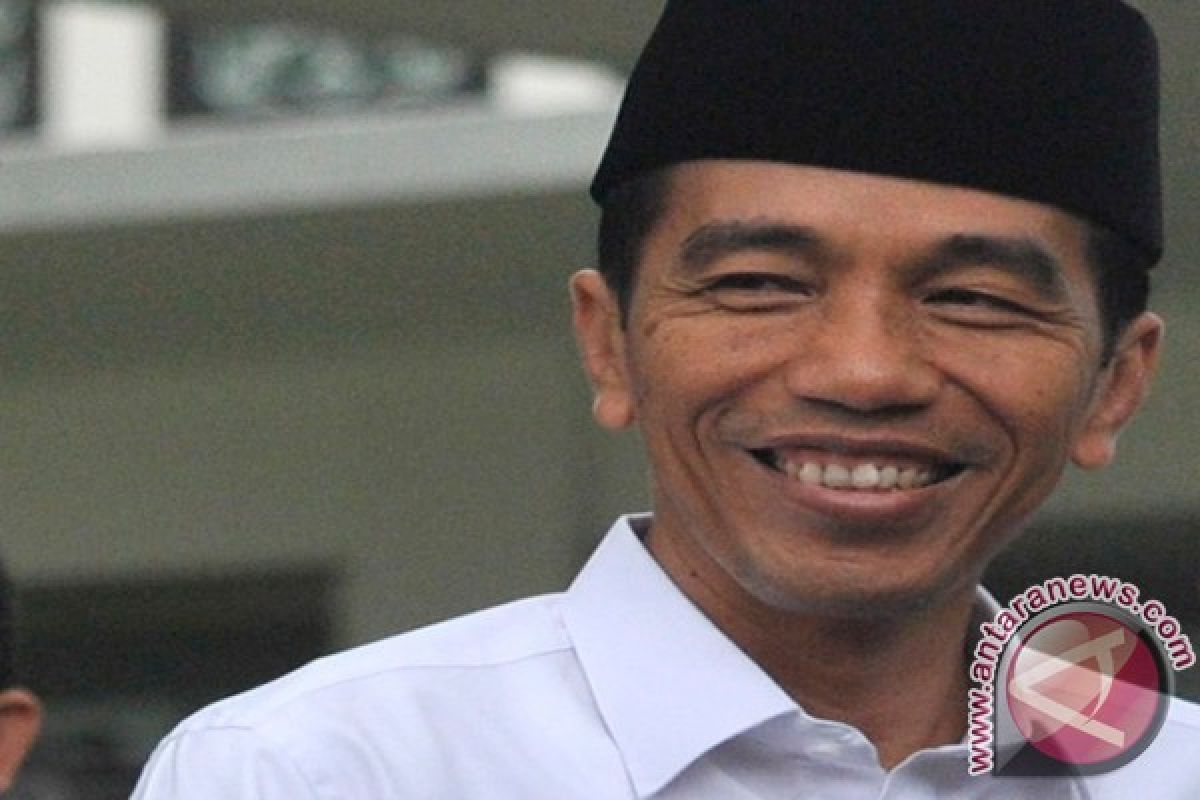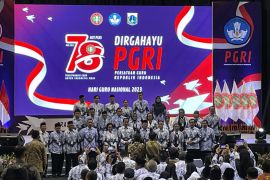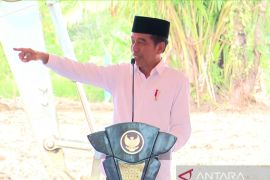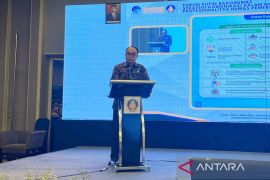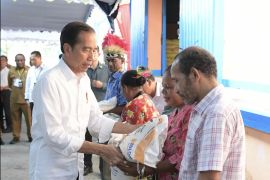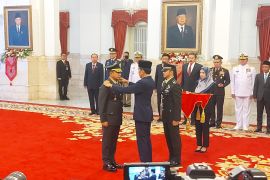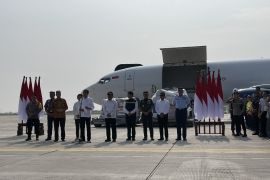You may check with the fishermen but I learned from satellite images that green chlorophyll in our sea has doubled, for that is what fish population is."Jakarta (ANTARA News) - The Indonesian government is in the midst of a program to ensure better maritime connectivity through a sea toll road development program which will ensure the development of border and remote regions and add to competitiveness.
In an interview to ANTARA News on Thursday (Oct 13) at the Merdeka Palace in Jakarta, President Joko Widodo said connectivity was needed to facilitate the movement of people and goods to support the economy in the outer regions.
When asked about the significance of developing connectivity for improving the national economy, President Jokowi, as he is also called, pointed out that the development of infrastructure projects needs faster movement of human resources and material. Besides, better connectivity brings down project costs.
Such projects could be on the land or sea or could even be connected to air traffic. Examples cited were roads, toll roads, seaports, airports and railroads on remote islands and regions.
The president underlined that the most important aspect of enhanced connectivity would be that Aceh will be directly linked with Papua.
He reminded that better infrastructure not just translated into good economics and material benefits but also strengthens national unity.
Asked how the development of border regions would impact connectivity and peoples welfare, President Jokowi emphasized that it was his wish that people should have a sense of pride when they travel along the border.
Citing an example, he recalled his visit to Motaain and said when he turned eastwards, he could see great buildings but on the Indonesian side, there were small structures and little shops that hardly induced pride.
Also, he noted that goods should be able to travel by land, whether from Motaain to Timor Leste or Entikong in Kalimantan to Malaysia.
Therefore, he did not only ask for the development of immigration, quarantine or other border crossing service offices but also big markets to bring economic benefits and make it easier to export products to other countries.
Regarding the war against illegal fishing in the maritime sector, President Jokowi reiterated that he just wished to salvage the countrys sea resources.
He explained that more than 7,000 illegal fishing ships were found poaching the countrys fish and taking the catch to neighboring countries. If this continued to happen, coral reefs would be destroyed and all the fish as well as other sea resources would be completely exhausted.
In view of that, in the past two years, 236 illegal fishing ships had been sunk by Fisheries Minister Susi Pudjiastuti, he observed, adding such action will make people think a thousand times before they think of poaching fish in Indonesian waters.
On the development of the fishery sector in Indonesia, President Jokowi conceded that traditional fishermen would certainly lose in the competition against big ships.
After so many foreign ships were stopped from poaching, there has certainly been more fish in the waters.
"You may check with the fishermen but I learned from satellite images that green chlorophyll in our sea has doubled, for that is what fish population is," he stated, adding that it meant that it was now possible to catch more fish and so income of fishermen would be better.
The president let it be known that he also wishes to put the fishery industry in order so that it could also create jobs.
Asked if Indonesia has now no longer turned its back on the sea, President Jokowi stressed that people now already see the sea as a source of richness and, therefore, sea infrastructure must be improved, including establishment of big sea ports.
He expressed satisfaction at the fact that fish poaching has sharply dropped and the countrys attention is now also focused on sea resources.
With regard to the sea toll road for ships, he informed that their routes and schedules have now been fixed. These will be designed in such a way as to ensure availability of ships from west to east, making it easier to ship basic goods such as sugar and rice.
(T.B019*H016/Uu.H-YH/INE/KR-BSR/B003)
Reporter: Hanni Sofia and Bayu Prasetyo
Editor: Priyambodo RH
Copyright © ANTARA 2016
